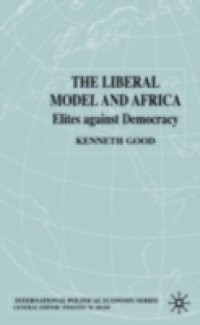This book critically examines the realities of liberal democracy; its elitism and non-accountability; and its inequalities and injustices. Participatory systems and movements, whether in Athens, seventeenth and nineteenth century England, or South Africa 1970-1990, are more effective in satisfying the democratic aspirations of the people and in curtailing ambitious elites, than what is passed off now as 'democracy'. By interrogating contemporary democratic regimes, in the United States, and in Botswana and South Africa, the severe limitations and constraints inherent in liberal democracy are highlighted. The need for a clear evaluation of what constituted democracy emerges as a powerful message of Kenneth Good's argument.

